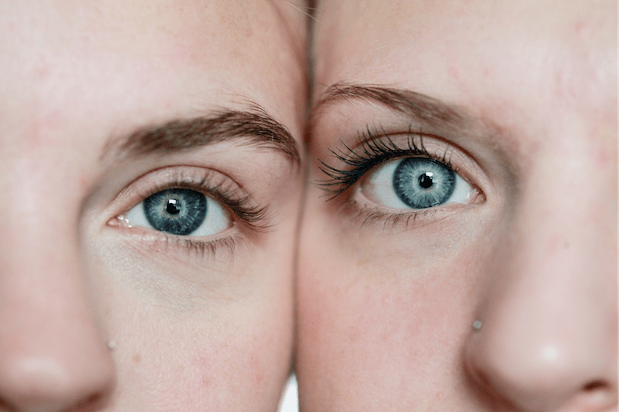Table of Contents
II. Family History and Ethnicity
V. Do Digestive Tract Infections Cause Rosacea?
The Influence of Acne
Contrary to popular belief, rosacea and acne are different skin conditions. Rosacea involves inflammation and redness on your skin that is caused by the dilation of blood vessels. Acne involves clogged pores and red bumps on your skin caused by oil overproduction and trapped bacteria. While they are distinct skin conditions, having a strong history of mild to severe acne can increase your risk of developing rosacea. [1]
Rosacea and acne can be hard to tell apart. Rosacea may cause acne-like breakouts. [2] Acne is usually treated with gels like Retin A (Tretinoin) and Aczone (Dapsone). Sometimes, people with rosacea mistake their symptoms for acne. It is important to get the right diagnosis because implementing the wrong treatment plan can delay your recovery. If you have rosacea, your doctor will likely prescribe Oracea (Doxycycline Delayed Release). Read on to learn about other factors that increase your risk of developing rosacea.
Family History and Ethnicity
Rosacea is a disease that may be inherited. Many times, several members of the same family will have the condition. [3] If you have a family history of rosacea, studies show that you are four times likelier to develop the condition than someone without a family history. [4] It is worth noting that while shared genetic factors play a part, a shared environment may also contribute to this data.
Your nationality does not make you more or less likely to develop rosacea. However, people who can trace their lineage back to Northern Europe or Scandinavia may be at a higher risk. [1] People of any skin color can get rosacea, but research shows that people with fair skin, blond hair, and blue eyes tend to develop rosacea the most. If you have a fair complexion and a history of blushing easily, you are more likely to develop rosacea. [3] [5] Your age can also affect your likelihood of developing rosacea. Rosacea can occur in children, but it tends to occur more in people between 30 to 50 years old. [1] The reasoning behind this is that rosacea is a chronic condition that can progressively worsen if left untreated. Younger people may have the condition as well but are more likely to miss symptoms and delay their diagnosis. Often, symptoms become more severe later in life. [6] When it comes to gender, rosacea tends to affect men and women differently. Even though women tend to develop rosacea more frequently, men are more likely to develop severe cases of rosacea. [3] Hormonal changes in the body can increase your risk of getting rosacea. Women who are going through menopause (or have gone through menopause) are three to four times likelier to develop the condition. [7] Certain lifestyle choices can increase your risk of developing rosacea. Drinking alcohol or smoking is a known factor that can trigger rosacea flare-ups. Eating spicy food can trigger rosacea outbreaks as well. Sometimes, your working conditions may be irritating your skin. Spending a great deal of time in the sun or being under constant stress are environmental factors that can increase your risk of developing rosacea. Other known environmental triggers include certain lotions, creams, soaps, and skin infections. [8] Some researchers claim that gastrointestinal infections may be one cause of rosacea. Infectious organisms seem to increase susceptibility to skin infections. In turn, skin infections may lead to rosacea. The bacteria that is commonly cited is called Helicobacter pylori. Researchers have also found a correlation between the number of skin mites on a person’s skin and the severity of rosacea. [8] However, a study of risk factors associated with rosacea have found that the bacteria Helicobacter pylori does not cause any statistically significant increase in a person’s risk for rosacea. Additionally, it still remains unclear whether rosacea attracts more skin mites, or the irritation from too many skin mites causes rosacea. [8] [9] Many of the risk factors for rosacea are things you cannot control. However, you can give yourself the best chance at slowing its progression by catching it early. Your doctor or a certified dermatologist can give you a proper diagnosis. On top of following your prescribed treatment plan, you can further control your condition by identifying and avoiding factors that trigger your rosacea. Protect yourself from the sun by applying sunscreen with an SPF of 30 or higher when you go outside. If you find that stress causes your rosacea to flare, reduce stress with techniques like tai chi, meditation, or simply doing something that you enjoy. It may be helpful to observe if spicy foods, smoking, or alcohol trigger your condition. For makeup and lotions, try using rosacea-friendly products. Finally, certain medicines that treat high blood pressure, heart problems, anxiety, migraines, or glaucoma may worsen rosacea, so always talk to your doctor to find the best treatment plan for you. [10] The content provided in this article is based on thorough research and in some cases, reviewed by a medical professional. Our goal for the information is to provide helpful, general health informational. It is not intended as a substitute for professional medical advice.
Age and Gender
Lifestyle Risk Factors

Do Digestive Tract Infections Cause Rosacea?
Managing Your Risk
